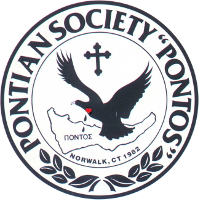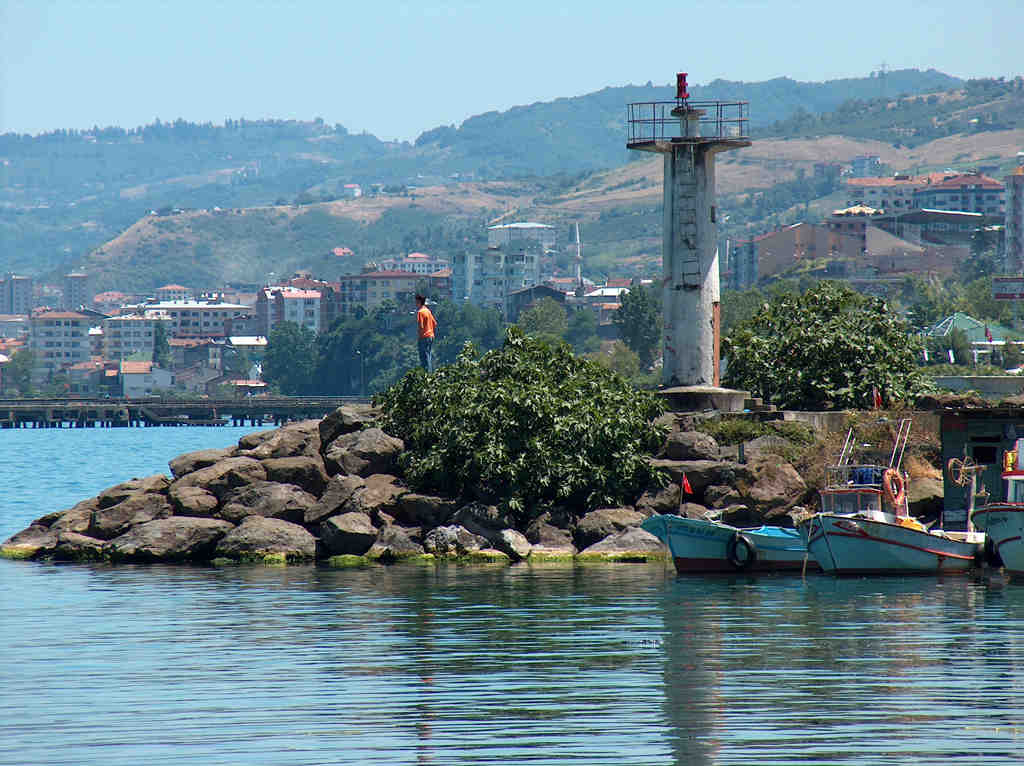 It is a town and port west of Trabzon. In the place of today’s Platanos was built the ancient Ermonassa which was named Farnakia during the reign of Farnakis the 1st. It was inhabited by 2000 people, half of whom were Christians. These years the Greek state’s glory goes back in the depths of the centuries. The Greeks has explored all the shores of the Black Sea since ancient times. Solve the mystery of the Black Sea and exploit the whole surrounding area. In the following years the Greek spirit was recognized throughout the Pontus. In the area of Platanon, the Greeks did great things.
It is a town and port west of Trabzon. In the place of today’s Platanos was built the ancient Ermonassa which was named Farnakia during the reign of Farnakis the 1st. It was inhabited by 2000 people, half of whom were Christians. These years the Greek state’s glory goes back in the depths of the centuries. The Greeks has explored all the shores of the Black Sea since ancient times. Solve the mystery of the Black Sea and exploit the whole surrounding area. In the following years the Greek spirit was recognized throughout the Pontus. In the area of Platanon, the Greeks did great things.
Platana is a seaside town. It is built on the site of the ancient city of Ermonassa mentioned by Strabo and other geographers, as a commercial city.
 Ermonassa during the reign of the king of Pontus Farnakis was named Farnakia. This Greek city suffered many disasters. It was completely deserted during the Middle Ages when Platana was built on the same site. Platana communicated with Trabzon by car but also by sea. They were a province of the prefecture of Trabzon together with the following 13 villages: Agrid. Assor, Fize, Kaliera Fysera, Strouki, Makrieni, Tsavana, Karcea, Aidani, Mersini, Frangoulanton and Kalogena. Platana was the seat of subdivision. The total population of the area was close to 10,000. The port of Platanos was quite large and safe and had an important commercial role over the centuries. The Platanians worked closely with the Trebizonds in all areas of everyday matters. Near the village of Mersini of Platani there is an old Byzantine castle. Like other Greek castles of Pontus, this one claims its special name: “T’Orias to Kastren” or “Tou Il’ to Kastren”. However, this is the castle for which there is a legend that he bravely resisted and in the end “fell” with betrayal. The Pontian muse sings this legend in general and abstractly praising the heroism of its defenders. The song does not refer to a specific area. In Platana with a Greek population of about 3,000 there were 2 parishes: Archistratigos and Agios Grigorios. Various Greek schools and girls’ schools operated there. Trade was the main occupation of the Greeks. In the villages the inhabitants were engaged in agriculture, animal husbandry and especially in the cultivation of tobacco as well as in the production of olive oil. They were also engaged in fishing. Plenty of turbot and especially hampsia were caught. The sources confirm that the production of hampsia (a type of small sardine) was so great that the inhabitants use them as fertilizers in the fields and especially in their tobacco fields. They even say that their tobacco with this fertilizer got a very nice color.
Ermonassa during the reign of the king of Pontus Farnakis was named Farnakia. This Greek city suffered many disasters. It was completely deserted during the Middle Ages when Platana was built on the same site. Platana communicated with Trabzon by car but also by sea. They were a province of the prefecture of Trabzon together with the following 13 villages: Agrid. Assor, Fize, Kaliera Fysera, Strouki, Makrieni, Tsavana, Karcea, Aidani, Mersini, Frangoulanton and Kalogena. Platana was the seat of subdivision. The total population of the area was close to 10,000. The port of Platanos was quite large and safe and had an important commercial role over the centuries. The Platanians worked closely with the Trebizonds in all areas of everyday matters. Near the village of Mersini of Platani there is an old Byzantine castle. Like other Greek castles of Pontus, this one claims its special name: “T’Orias to Kastren” or “Tou Il’ to Kastren”. However, this is the castle for which there is a legend that he bravely resisted and in the end “fell” with betrayal. The Pontian muse sings this legend in general and abstractly praising the heroism of its defenders. The song does not refer to a specific area. In Platana with a Greek population of about 3,000 there were 2 parishes: Archistratigos and Agios Grigorios. Various Greek schools and girls’ schools operated there. Trade was the main occupation of the Greeks. In the villages the inhabitants were engaged in agriculture, animal husbandry and especially in the cultivation of tobacco as well as in the production of olive oil. They were also engaged in fishing. Plenty of turbot and especially hampsia were caught. The sources confirm that the production of hampsia (a type of small sardine) was so great that the inhabitants use them as fertilizers in the fields and especially in their tobacco fields. They even say that their tobacco with this fertilizer got a very nice color.
The Greek inhabitants of the Platanos of Pontus remained faithful to their ethno-religious traditions. They emigrated but could never forget their heavenly place with its mild climate, beautiful countryside (seaside), calm sea and famous folk festivals, such as Agia Kyriaki on July 7 and Profitis Ai-Lia on July 20. With the withdrawal of Russian troops from Pontus in 1917, many Greeks in the Platanon area left their place and settled in various parts of Russia. But they also helped the churches and schools of their villages from afar. Every Tuesday in Platana there was a big popular market. Various merchants arrived there, mainly from Trabzon. The ties of Platanos with Trabzon are historical. There are serious indications that this center of Hellenism was founded by Trabzons. Among the various festive events in the area of Platanon, the feast of Lights was of special importance. The entire Greek population watched and participated with great emotion the sacred ceremony of the diving of the Holy Cross and the sanctification of the waters. After the ceremony, everyone had fun and had a drink. According to custom, on that day everyone’s main food was peinirlia. The town of Platani had a festive look and the various events had a strong Greek color.
SOURCE: kotsari.com

